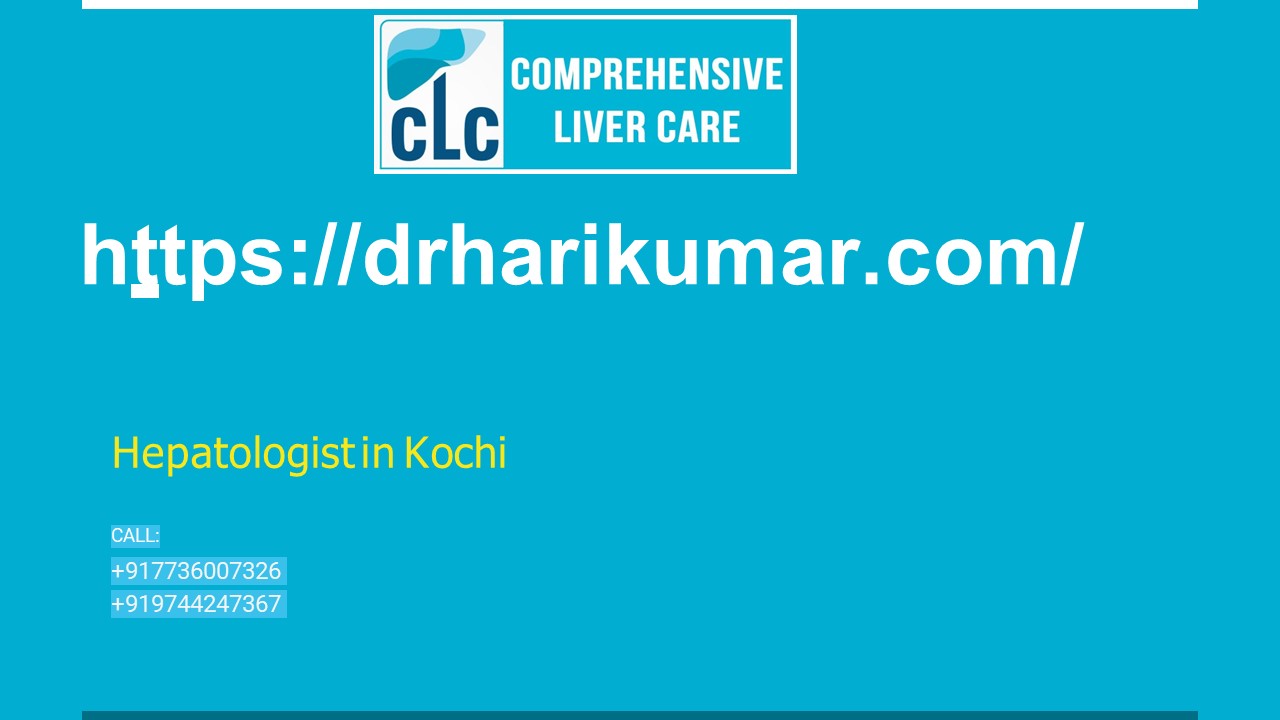Hepatologist Doctor in Kochi - PowerPoint PPT Presentation
Title:
Hepatologist Doctor in Kochi
Description:
If you're in Kochi and in need of a skilled hepatologist, your search ends here. Our hepatologist is a specialist in liver-related disorders, offering comprehensive care and expertise. Whether you're dealing with hepatitis, cirrhosis, liver tumors, or any other liver condition, our expert can provide precise diagnosis and tailored treatment plans. With a focus on improving liver health, they offer medication management, lifestyle recommendations, and support throughout your journey to better well-being. Located in the vibrant city of Kochi, our hepatologist is your trusted partner for all your liver health needs. Your liver's health is our priority. – PowerPoint PPT presentation
Number of Views:0
Title: Hepatologist Doctor in Kochi
1
https//drharikumar.com/
Hepatologist in Kochi
CALL
917736007326
919744247367
2
(No Transcript)
3
Hepatologist ?
- A hepatologist is a medical specialist who
focuses on the diagnosis, treatment, and
management of diseases and conditions that affect
the liver, gallbladder, biliary tree, and
pancreas. These physicians have specialized
training and expertise in the ?eld of
hepatology, which is a sub-specialty of
gastroenterology. - Hepatologists are highly knowledgeable about
various liver disorders, including hepatitis
(both viral and non-viral), cirrhosis, fatty
liver disease, autoimmune liver diseases, liver
tumors, and metabolic liver diseases. They play a
crucial role in evaluating patients with
liver-related symptoms, performing diagnostic
procedures, and designing treatment plans.
4
What treatments do hepatologists offer for liver
diseases?
Hepatologists offer a range of treatments for
liver diseases, depending on the speci?c
condition and its severity. Some common
treatments and interventions provided by
hepatologists include Medications Hepatologists
can prescribe medications to manage various liver
diseases. For example, antiviral drugs are used
to treat viral hepatitis (such as hepatitis B
and C), immunosuppressive drugs may be used for
autoimmune liver diseases, and medications like
ursodeoxycholic acid can be prescribed for
certain liver disorders like primary biliary
cholangitis. Lifestyle Modi?cations
Hepatologists often recommend lifestyle changes
to improve liver health. This may include
dietary adjustments, weight management,
exercise, and avoiding alcohol or other
substances that can harm the liver.
5
Hepatitis Vaccination Hepatologists can provide
vaccinations against hepatitis A and hepatitis B
to prevent these viral infections, especially in
individuals at high risk. Management of
Cirrhosis For individuals with cirrhosis
(advanced scarring of the liver), hepatologists
help manage complications such as ascites
(accumulation of ?uid in the abdomen), variceal
bleeding, and hepatic encephalopathy through
medication, dietary changes, and procedures like
paracentesis or transjugular intrahepatic
portosystemic shunt (TIPS) placement. Liver
Transplantation In cases of severe liver disease
or failure, hepatologists are involved in the
evaluation and preparation of patients for liver
transplantation. They work closely with
transplant surgeons to determine eligibility and
oversee post-transplant care.
6
Endoscopic Procedures Hepatologists may perform
endoscopic procedures like endoscopic retrograde
cholangiopancreatography (ERCP) or endoscopic
ultrasound (EUS) to diagnose and treat conditions
involving the bile ducts or pancreas. Clinical
Trials Hepatologists may also participate in or
refer patients to clinical trials for
experimental treatments and therapies,
particularly for conditions like advanced liver
cancer or rare liver diseases. Nutritional
Support For individuals with liver diseases
affecting nutrient absorption or metabolism,
hepatologists may provide nutritional guidance
and, in some cases, recommend nutritional
supplements. Education and Support Hepatologists
educate patients about their condition,
treatment options, and the importance of
adherence to their treatment plan. They offer
support and monitor patients' progress over time.
7
(No Transcript)































